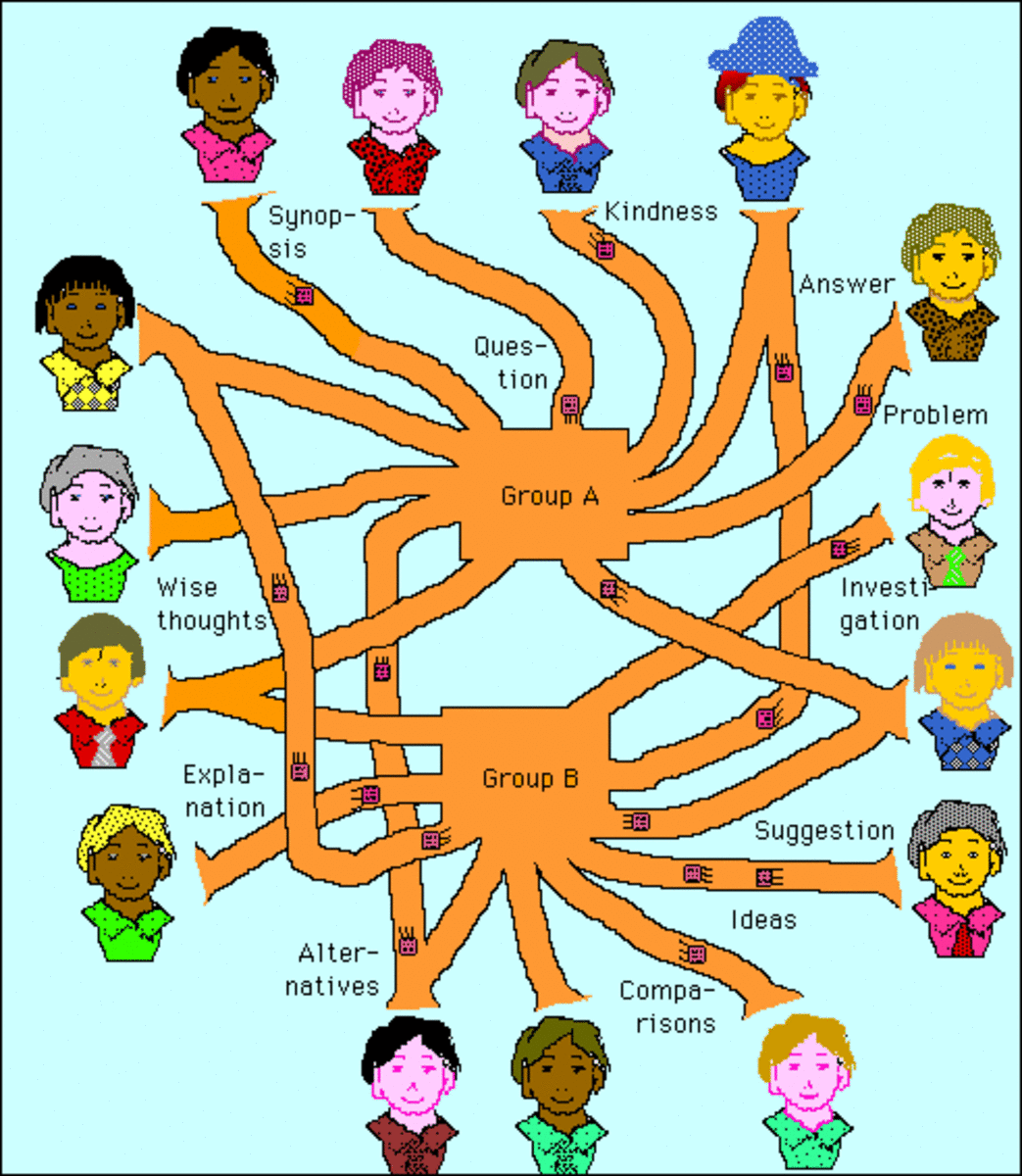How to increase your vocabulary: Tips to learn new words and prepare for English proficiency tests

To score well in internationally recognized competitive entrance tests like SAT, GRE, GMAT and specific English language proficiency tests like IELTS and TOEFL, students are expected to have a good vocabulary. However learning new words and expanding the fundamental base of English language may not come naturally to many students, including those who have English as their second language.
To prepare for an exam or to simply flaunt new words in conversations, read on and find out how you can build and increase your vocabulary naturally with simple every day habits.
1) Subscribe to an online dictionary to learn a new word every day
Undoubtedly, it is extremely cumbersome and boring to look up a pocket dictionary every day and rote a new word without putting it into context. If you want to see one new word in your inbox each day, all you need to do is sign up on the mailing list of famous online dictionaries like Dictionary. com, dictionary.cambridge.org, Thesaurus.com, Vocabulary.com or Merriam-webster.com.
Every day these websites will email you one word with examples of its practical use. If one word a day seems too less for you, do this for a month and see how many new words you have learned.
2) Try out all the games, tools and extra resources given on online dictionary portals
An easy way to actively increase your vocabulary without making the process seem dull and boring, is to use all the available interactive tools and resources available on online portals.
For example, Dictionary.com has features like Word Dynamo, Did You Know, Nearby Words, Synonyms, Quote of the Day, The Hot Word, Slideshows, Cultural Idioms, Science Slang and a Medical Dictionary amongst many others. The website also has an iPad app which has fun vocabulary games.
Learning new words does not have to be tedious. Interactive tools add a touch of fun and challenge, both of which are vital for a wholesome and thorough learning process.
3) Note down new words and find their meaning right away
One of the biggest mistakes you can make while learning new words is to ignore them when you spot them. Whether you are reading a newspaper, novel, magazine, technical subscription, studying for college or watching a film, you should make it a habit to immediately note down the words that you cannot understand.
If jotting these words down on a notepad seems cumbersome, use your iPhone, smartphone, iPad or any other device. Make sure that you look up all the difficult words immediately or by the end of the day. Don't let the list build up into something you find daunting later on.
4) Make a words-to-use-in-the-day list to make difficult words easy
Having an extensive vocabulary has little value until you know how to use them in proper context at the right time. To easily remember new and difficult words, practice using them in a sentence while you converse with people every day.
For example, if mellifluous is on your list for the day, use it as many times in as many contexts as possible. For instance, 'That singers' melody was absolutely mellifluous' or 'I've heard enough praises about his mellifluous voice.'
This tip is all about using deliberately using difficult words in conversations till the point that they become a part of your every day vocabulary.
5) Read intellectually rich magazines
Reading intellectually rich magazines such as Time Magazine, The National Geographic or The Economist is an easy and entertaining way to increase your vocabulary. The magazines will deliver a wholesome lingual experience which this will go a long way in expanding your language base. Additionally, you will learn how to use difficult words in a context, as opposed to just cramming or rote learning.
While there is nothing wrong with reading a glossy women's magazine, it may not be at par with other niche subscriptions when it comes to picking up new words.
6) Join a group or ask your friends to help you
It's quite possible that you may have likeminded friends who also want to learn new words and speak eloquently. Why not make a group and learn new words in unison? Bouncing new words off each other, quizzing each other on a complex word's spelling and giving each other trivia about the origin of a word are great ways to remember new words easily.
7) Keep a thesaurus handy and use it at every possible opportunity
A thesaurus is a treasure trove of words and its utility can be overlooked by students. It's like a chest from which you can pull out the choicest of words that are most apt to be used when you really need them. A thesaurus can help you learn synonyms, which in essence means fancier version of ordinary words.
Start looking up the most ordinary of words in a thesaurus and be prepared to be surprised at the plethora of knowledge you've been staying away from so long. For instance, you can use words like aroma, odor, essence, fragrance, incense or redolent in place of the common word smell.
8) Fill up crosswords in the dailies
Filling up crosswords will force you to think and stretch your intellectual capacity. While doing so you will learn new words and inadvertently remember them because you've put in so much effort to think of them in the first place.
First timers should remember that filing crosswords is not as easy as it sounds. Don't let the temptation of giving up get the better of you. The puzzle of words may seem tough in the beginning, but the whole process will go from tedious to addictive once you get the hang of it.
9) Place sticky notes of difficult words where you can see them all the time
Refrigerator, bathroom mirror, closet wall, study desk, lobby, monitor, glove box of a car – these are unassuming spots that you look at every day. An easy way to induce passive learning is to put up sticky notes at all these unassuming places. Jot down difficult words and their meanings.
As you walk past every day, you will inadvertently read and remember the words you have put up. Keep putting up new sticky notes every few days to expand your vocabulary.
10) Make a list of the new words that you learn: Create thematic categories
This is a focused technique that can be used to meticulously organize your efforts to your vocabulary. In a new excel sheet, create broad categories such as Food, Business, Technology, Automobile, Behavior, Action, Feelings and so on. Use one column for each category. Every time you learn a new word, enter it into your spreadsheet in the appropriate category.
By assigning a category, you will subconsciously attach new words and their meanings to a theme. You will actively engage your mind in a focused exercise that will help create yet another mental and visual note of the new words that you learn.
11) Watch specific TV shows and movies to enhance your listening and speaking vocabulary
An effective way to increase your listening and speaking vocabulary is to watch specific TV shows and movies. The trick is to be choosy about what you watch. For example, if you watch a lot of episodes of the hit sitcom The Big Bang Theory, you are likely to pick up a lot of interesting words and technical jargon through the ramblings of Sheldon Cooper and Leonard Hofstadter.
On the other hand, a cooking show like Kitchen Nightmares will expose you to an array of culinary jargon. Alternatively, you can choose to arm yourself with a variety of words by watching specific talkative classic films.
The main goal behind being selective is to expose yourself to a variety of new words, which you may not come across in your everyday lifestyle.
12) Add some French, Spanish or Latin to your repertoire of English words
Voila, Joi de vivre, au contraire, muy bein, gracias, tete a tete, touché, crème de la crème, Rendezvous, déjà vu – it is common to see these words being used in English in print, visual and audio mediums alike.
To flaunt your vocabulary, it is perfectly acceptable to sprinkle your English with a sporadic dose of Spanish or French words. Using these can make you sound extremely eloquent and well spoken while in elite company. The literary knowhow of these words will also boost your speaking vocabulary.
13) Refer to sample tests and practice: IELTS, TOEFL, SAT, GRE or GMAT
If you are specifically preparing for an entrance test, it is advisable to look at practice test modules of the test you are going to take. This will give you a better idea of the level of English proficiency that is expected out of you.
Pick up sample tests and time your attempt. After finishing a couple of tests, you will get a good idea of where you stand. Keep taking these practice tests every week/fortnight to track your progress.










